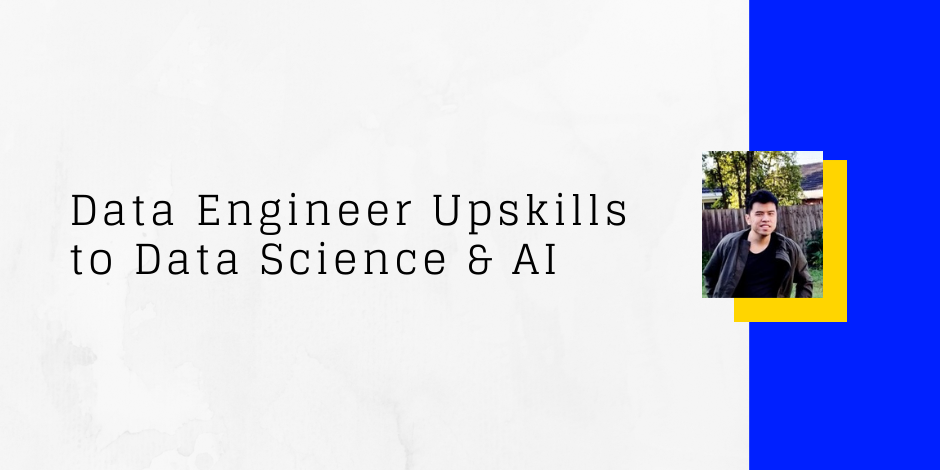How a Data Engineer Can Benefit from Additional Data Science Skills

Stay Informed With Our Weekly Newsletter
Receive crucial updates on the ever-evolving landscape of technology and innovation.
Isaac Low is one of the most recent graduates from our Data Science & AI 2021 Full-time program. With a background in Data Analytics and up to 2 years of experience working as an entry-level Data Engineer, he wanted more. Seeing the potential in the Data Science and Artificial Intelligence area, he sought out the Institute of Data and RMIT certification in order to have the practical skills needed to progress further in his career. Through his dedication towards expanding his future career opportunities, he was able to successfully transition his career within 3 months. He developed a Capstone Project relating to his previous start-up experience and now is able to work in a more data-oriented career path.
This is his learning journey so far:
Can you describe your career experience before making the change to data science & AI?
“I have a Masters of Information Technology (Data Analytics), and 1-2 years experience with a startup called Possible Me as a Data Engineer.”
With your previous experience as a data engineer, how did you transfer and apply those experiences to prepare you to study data science?
“Being a data engineer taught me how to appreciate creating data pipelines and getting data into a usable format for data analysts and scientists. My background in programming and using the cloud greatly helped my journey in learning more about data science.”
What were your career goals before upskilling to data? How has your outlook changed?
“Honestly, it wasn’t very clear where I was heading. I knew I wanted to be in the data space. Being a data engineer and wanting to transfer into data analytics, I took on more data analytics projects.”
Why did you choose to join the Full-Time Program in particular? What appealed to you?
“The Full-Time Program enabled me to complete the course ASAP without delays so I wouldn’t have too much of an employment gap.”
Your Capstone Presentation also achieved top results. How did you prepare for this presentation?
“It helps to try to relate the Capstone Presentation to a real-world project you are doing. In my case, I related it to a startup. Having business-domain orientation by looking for key metrics that helps stakeholders and pitches a selling point for data is equally important.”
What did you enjoy the most about the capstone project?
“It was something that challenged me. The ability to craft my own data science project rather than copy someone else’s appealed to me.”
You’re now working as a Data Engineer with NAB – Congratulations! How did you get a job in the industry after completing your training and what guidance would you give someone applying for jobs after upskilling?
“It depends largely on the types of companies or employers you are conversing with. NAB has a strong culture of Agile project management, leadership orientation and inclusivity. You must understand what employers themselves are looking for. Look at their credentials and network with employers to find out what kind of candidates they are looking for and form your elevator pitch accordingly. But remember, rejection is a good thing because you find out about all the roles you don’t want.”
How do you prepare for a data science interview? What are the most important things to remember and bring along with a potential employer?
“My recent interview was for the data engineering role in the banking industry. In my opinion, you should prepare a response of the kind of person the interviewer is looking for. Be genuine and find roles that suit you and your personality.”
How do you compare your career situation now to 6-12 months ago?
“6-12 months ago, I would hone my CV and cover letter, prepare extensively for interviews and hope for the best. Nowadays, I usually like to make the first point of contact and show an interest in their organization. Confidence is key. After that, I just treat the call like a sales proposition. If we are a good fit for each other, I say let’s have a go!”
Would you recommend upskilling to fellow professionals? Who would be suited to become trained in data in your opinion?
“It depends. I think you need to have a desire to work in data. Of course, if you have work experience, that helps as well. But I recommend doing a certificate while seeking out some related work experience.”
Connect with Isaac on LinkedIn here.
If you are interested in learning more about data science jobs in Melbourne and want to boost your career prospects in 2021, schedule a consultation with a Data Industry Career Consultant today.

